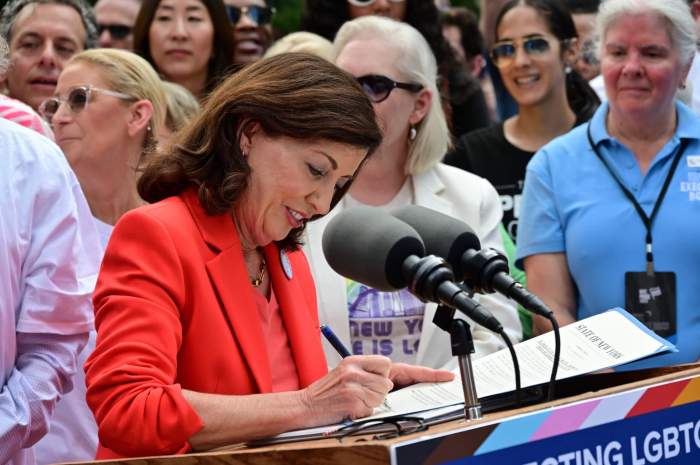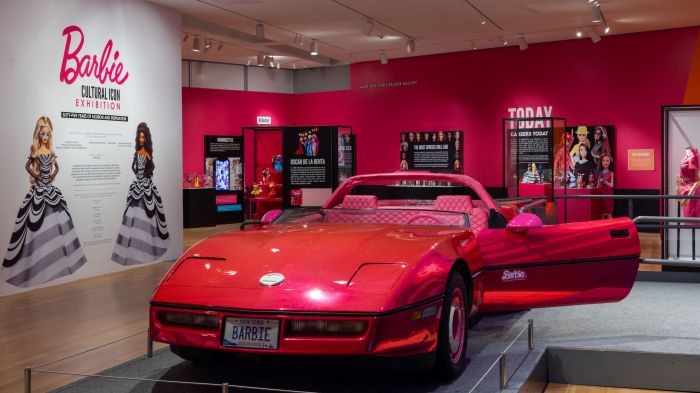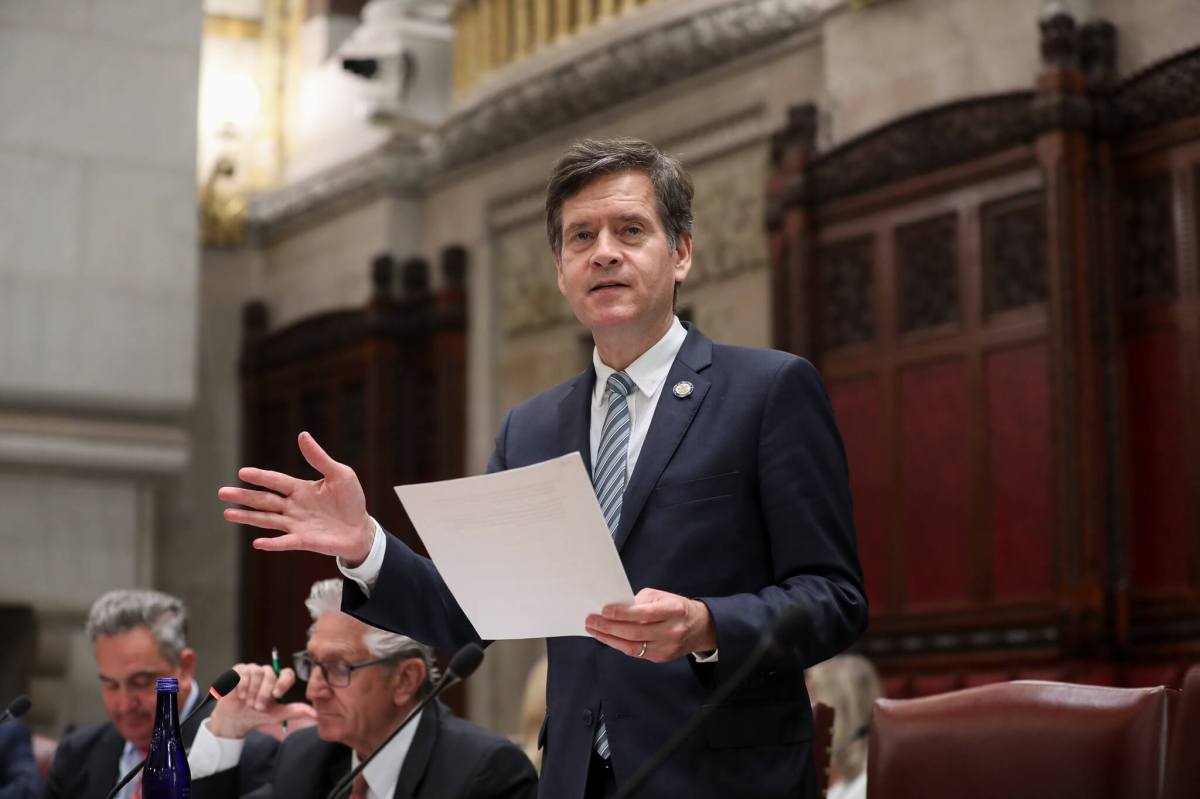VOLUME 3, ISSUE 323 | June 3 – 9, 2004
Curtain Call
BOMBAY DREAMS The cartoonish plot follows the exploits of Akaash, an “untouchable” from the slums as he tries to break into the Bollywood film industry. Only by becoming a rich movie star can he buy the land on which his family and friends live. He meets a documentary filmmaker slumming to do research and gets a part on a TV show that he turns into an opportunity to be a movie star. And before you can say “Mickey and Judy,” Akaash becomes India’s biggest star. But we all know that even stars have their trials, and Akaash brings on his own by turning his back on the people who made him—particularly the eunuch Sweetie and his grandmother—at his big opening. This is the show’s tension, especially when a plan emerges to tear down the slums where Akaash and Rani grew up. The Broadway Theatre, 1681 Broadway at 53rd St., 212 239 6200. (C. Byrne)
BOY In “Boy,” each anguished character has a personal story that could surely use a rewrite. Then there’s the Boy, who doesn’t seem to have a name, unless you count “Pothead,” the nickname his buddies called him back home in Iowa. This broken Boy, who may in fact be a master manipulator, denies that he’s gay so many times it’s hard to believe him. In toying with the notion of plot structure and faulty endings, this admirably complex work scrambles scenes out of chronological order. As the story progresses, more unexpected connections emerge. Bonds are tested, secrets are exposed, feelings are trampled. Primary Stages, 354 W 45th St., 212 279 4200. (D. Kennerley)
BRIDGE & TUNNEL Creating a show-within-a show, the supremely gifted performance artist Sarah Jones’s latest play is based on a poetry slam in South Queens. In this archly provocative play, Sarah Jones, who is of African, European, and Caribbean descent, plays 14 characters from myriad ethnic backgrounds who recite their poetry or perform soliloquies onstage. Without a trace of sentimentality, the play shows the travails of assimilation and racial intolerance in America, as well as revealing common traits some folks would rather ignore. Jones does not hesitate to play the “green card” to drive home her messages in monologues gleaned from months of interviews with immigrants, many of whom are undocumented, and her own meticulous observations of New Yorkers on the subway. The 45 Bleecker St. Theater, 212 253 9983. (D. Kennerley)
BUG Tracy Letts’ new play opens with a desolate Agnes, drinking, smoking, and being bored, in a seedy Oklahoma motel room, where the entire story is set. Agnes, whose ex-husband is in jail and whose son is kidnapped, ekes out a living as a bartender. What money she has is spent on cocaine and liquor. Her lesbian friend R.C. comes over one night with Peter, a drifter, who at first is short on words, but winds up staying. Agnes, after all, is lonely. Agnes’ husband, Jerry, is released from jail and shows up. Agnes and Peter become lovers and she discovers that he believes bugs are eating him and are part of a vast government conspiracy to control humans. Agnes eventually becomes psychotic and delusional herself. Barrow Street Theatre, 27 Barrow St., 212 239 6200. (C. Byrne)
FIDDLER ON THE ROOF David Leveaux delivers a cool and distant “Fiddler” that is neat and tidy and runs no risk of offending anyone. To me, the dramatic tension of “Fiddler” has always been between Tevye and God. Tevye is a proud man of strong faith, steeped in tradition, who is forced to reexamine himself, his life, and his beliefs as the world is changing around him. Nothing in his life––that has found such comfort in tradition––has prepared him for the world he is encountering and he is frightened and unprepared. So, he turns to God, as he and his ancestors have always done. From the pogrom that sounds like the dropping of a bunch of dinner plates to a Tevye who is a pushover, this production never offends, but it never catches fire either. Minskoff Theatre, 200 W. 45 St., 212 307 4100. (C. Byrne)
FROM DOOR TO DOOR James Sherman’s new play is a warmly lyrical family drama played out through the experiences and interactions of three generations of Jewish women. It’s also an exploration of how culture and religion shape an individual’s experiences, at times creating neuroses. The play begins in 1939 but the experiences of the women reach back further, such as Bessie, the oldest character, who remembers escaping the pogroms of the late 19th century in Russia and coming to New York where she raised her daughter Mary. Mary in turned raised a daughter, Deborah, and the action of the play takes place in different times with each woman appearing both as mother and daughter at different times. Westside Theatre, 407 W. 43 St., 212 239 6200. (C. Byrne)
INTIMATE APPAREL Viola Davis plays Esther, a black seamstress in 1905, who makes intimate apparel for women and whose talent and sense of beauty have given her a level of freedom within the culture and an ability to move between the strata of society in ways that were not common then. Ironically, while Esther may know intimate apparel, she aches for human intimacy. For all her sense of beauty, though, Esther is illiterate, and when she receives a letter from a friend of a friend, an epistolary courtship ensues with Esther relying on her educated clients to pour out her heart. Laura Pels Theatre, 111 W. 46th St. 212 719 1300. (C. Byrne).
JUMPERS George Moore, a philosophy professor, is preparing a speech on God and morality, which he is dictating to his secretary in the office of his apartment. Meanwhile, in the other room, his wife Dorothy (also known as Dottie), a musical comedy star, is having a nervous breakdown because a lunar landing gone wrong has forced her to question what she believed to be true about life. Archie’s slickness triumphs over George’s intellect, an unhappy conclusion only mitigated by the hope, at the play’s end, that Dottie, left hanging on a papier maché moon, finds no solace in the answers of either man. Brooks Atkinson Theatre 256 W. 47th St., 212 307 4100 (C. Byrne)
A RAISIN IN THE SUN The story concerns the Younger family, who share a tenement apartment in Chicago. As the play opens, they are about to receive $10,000 in insurance money from the death of the father of the family. Walter Lee wants the money to invest in a liquor store. His sister Beneatha wants the money to pay for medical school. The mother, Lena, wants to buy a house and move out, and Walter Lee’s wife, Ruth, supports that move. Walter Lee is a chauffer and Lena and Ruth are domestic workers—all of them barely getting by—so the money is a promise of change and a new kind of economic freedom they have never known, a realization of the dreams that never before seemed attainable. Ruth takes part of the money and buys a home in a white section of town. She gives the rest to Walter Lee who promises not to put it into the liquor store, only to do so anyway and have a partner run off with it. But the family sticks to their plan to move, determined to make a go of it, despite the efforts of the homeowner’s organization in their new neighborhood to buy the house and dissuade them from integrating their community. It is Lena, the matriarch, who makes the decision that no matter the hardships, the dream of their own home is one that they will not defer—and in making that choice a new world of possibility is opened for all the characters. The Royale Theatre 242 W. 45 St. 212 239 6200. (C. Byrne)































